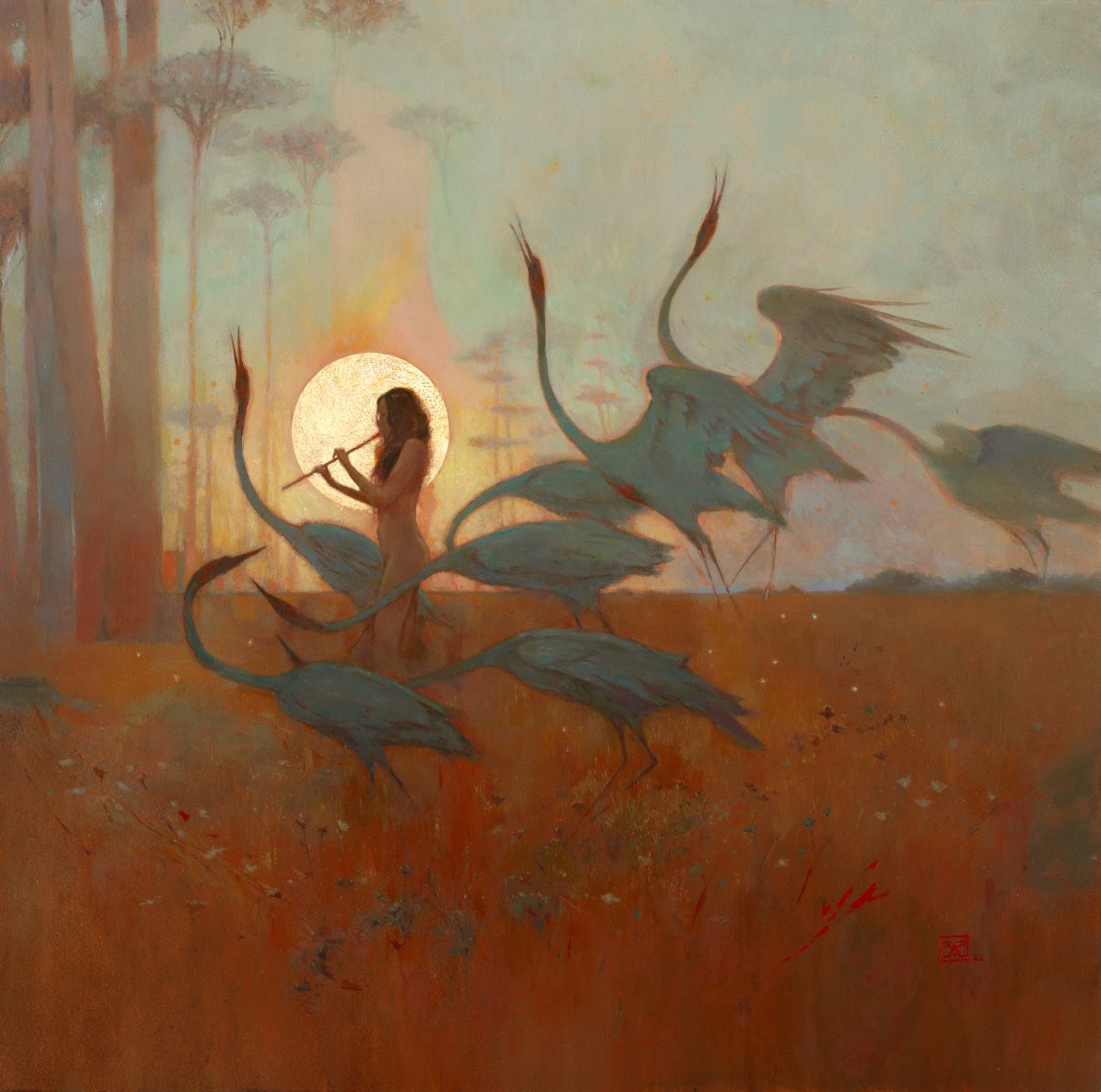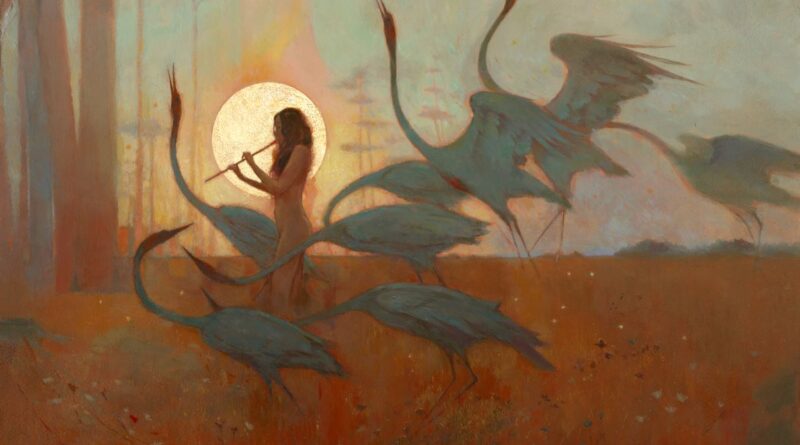ALBUM REVIEW: Les Chants De L’Aurore – Alcest
The release of a new ALCEST album has been eagerly anticipated since the French duo dropped the brilliantly dark Spiritual Instinct more than five years ago. That release was a semi-return to the blackened post-metal that they helped innovate following the massive departure of 2014’s Shelter and 2016’s Kodama, with the latter hinting more towards their heavier roots than the former. With the release of Les Chants De L’Aurore, ALCEST continue this pattern of innovation in a less drastic way than the “dream-pop” direction of Shelter, while all the same managing to conjure the same light and uplifting power that this release achieved over a decade ago. It’s an album that’s bound to frustrate some long-term fans that delighted in the blackgaze sound of Spiritual Instinct, but the brilliance of Les Chants De L’Aurore comes from this continued evolution and the band’s ability to combine lighter and more progressive sounds with their darker roots in a delicate balancing act.
These changes are evident from the get-go on the opening track Komorebi. Whereas Spiritual Instinct opened with the heavy bass guitar and shrill post-metal guitar tones, Komorebi drifts into frame ambiently, cello and delicately plucked guitar notes starting things off before the song kicks into life. The rapid drumming from Winterhalter and tremolo guitar tones from Neige that have become a staple of their sound and the wider blackgaze genre are present throughout, but there’s an altogether more celebratory feeling present throughout. As the track develops, it’s impossible not to have your mood lifted by the sheer joy that’s bursting out of every note, every instrument and every word. L’Envol continues this with brilliance, paying dues to their darker side as the track develops. There’s a melancholy in the opening that soon falls away as the more melodic, elevated aura returns, but vocalist/guitarist Neige allows himself some ghostly wails that contrast starkly but brilliantly with the heavenly atmosphere created by the musicianship.
Améthyste features some of the darker moments of the album, but as is always the case with ALCEST, there’s a torchlight in that darkness that guides the way. It’s a more sorrowful track than the opening two – the melodic vocals of the chorus give way sharply to black metal growls, and slower sections can burst into black furore at moment’s notice. The sombre tone falls away on Flamme Jumelle as its golden light beams into the room. It’s perhaps, at times, the closest ALCEST get to the unique sound of Shelter on this new release – it’s as uplifting and glorious as some of the brightest moments of that album, without straying too far away from their metal DNA. As the track peaks, it slowly fades into the hymn-like vocal/piano interlude Réminiscence.
A Japanese spoken word introduction sets up L’Enfant De La Lune before it explodes with high-speed drumming and guitar work. The heavy instrumental work makes up for the lack of growls, keeping the pace high between the slower breaks and building towards the well-earned climax at the tail end of the track. It’s the last hurrah for the album, which pairs with the far more introspective and meditative L’Adieu, ending Les Chants De L’Aurore on a calm and blissful note.
After a long five years, Les Chants De L’Aurore marks yet another brilliant evolution for ALCEST – one that sees them re-examine where the line lies between their lighter and darker selves. There’s a magic to their music that isn’t lost with this new dawn – far from it, in fact. A pandemic’s worth of worry and relief emanates from every distressed scream and enlivening chant, bringing with it the highs and lows that have always personified ALCEST.
Rating: 9/10

Les Chants De L’Aurore is set for release on June 21st via Nuclear Blast Records.
Like ALCEST on Facebook.

